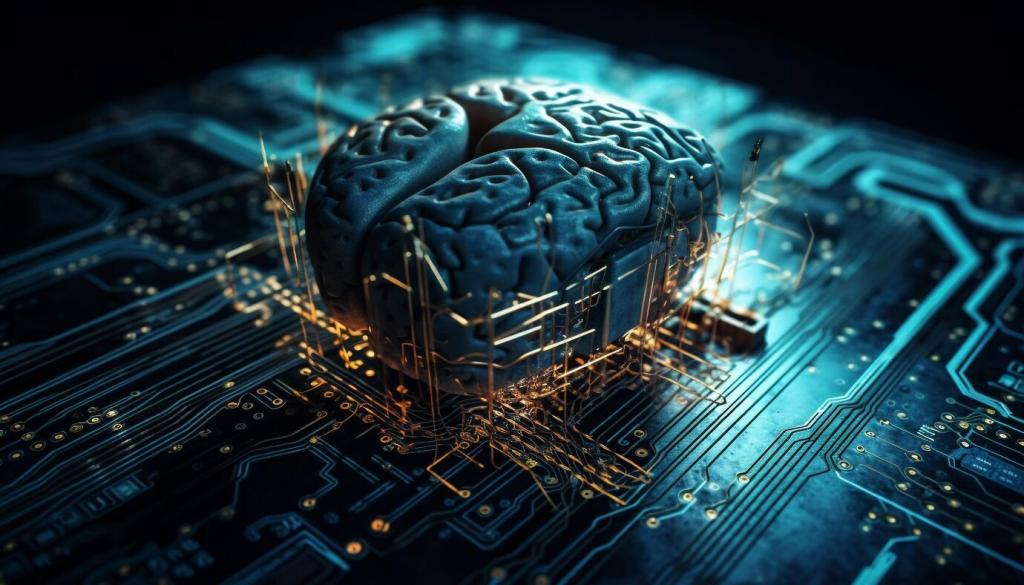AI Technologies for Reducing Response Times
In today’s fast-paced digital world, organizations are increasingly turning to artificial intelligence to reduce response times and exceed customer expectations. The need for speed in digital interactions is more important than ever, as users demand instant answers and swift resolutions. AI technologies are transforming the way businesses operate by automating repetitive tasks, predicting needs, and enabling seamless, round-the-clock service. This page explores how advanced AI tools are deployed to streamline processes, ensuring that customers, employees, and stakeholders experience rapid, reliable, and efficient responses at every turn.


Natural Language Understanding
Natural Language Understanding (NLU) empowers chatbots with the ability to comprehend and interpret user inputs accurately, no matter how they are phrased. This capability allows for much more natural and human-like conversations, leading to higher first-contact resolution rates and significantly reduced wait times. As NLU models become more sophisticated, they can manage ambiguous or complex questions, guiding users to precise answers almost instantaneously. By deciphering intent and context, NLU-enhanced chatbots reduce the back-and-forth often seen in traditional support channels, improving the overall efficiency of customer communications.

Automated Query Resolution
AI-driven systems are designed to instantly resolve a wide range of routine questions and issues. Automated query resolution involves accessing knowledge bases, retrieving relevant information, and responding to queries without human intervention. This process not only slashes response times but also ensures consistent and accurate information delivery. When queries are more complex, the AI can seamlessly escalate the issue to a human agent, but even then, it provides essential background, ensuring a smooth transition and minimal additional delay. This automation enables organizations to handle large volumes of requests during peak times or unexpected surges without sacrificing service quality.

Continuous Learning and Improvement
Modern AI chatbots continuously learn from every interaction. With machine learning algorithms, these systems analyze chat transcripts, identify areas for improvement, and adapt their responses to better meet user needs. This constant refinement process leads to even faster and more effective responses over time, as frequent issues and newer topics are quickly incorporated into the chatbot’s repertoire. Such self-improvement means that AI assistants not only reduce today’s response times but are also future-ready to adapt to changing requirements, ensuring ongoing efficiency and high levels of user satisfaction.
Predictive Analytics for Proactive Support
Anticipating Customer Needs
Through the examination of user journeys, past interactions, and contextual data, AI systems can foresee what a customer might require next. This foresight enables organizations to prepare resources, prompts, or even automated messages before a customer formally submits a query. By understanding intent and timing, such predictive capabilities can transform customer support from a reactive service to a proactive engagement. Customers benefit from expedited resolutions, often receiving help before they even realize they need it, resulting in elevated satisfaction and loyalty.
Real-time Data Processing
Predictive analytics relies heavily on real-time data processing to function effectively. AI algorithms continuously monitor incoming data streams, such as website clicks, app usage, or sensor feeds, to identify emerging patterns that require immediate attention. When anomalies or potential issues are detected, AI can trigger instant alerts, offer solutions, or direct users to the appropriate resources without delay. The ability to process vast amounts of data in the moment enables organizations to tackle issues promptly, reducing downtime and ensuring a fluid, uninterrupted user experience.
Personalized Recommendations
AI-driven predictive models facilitate the delivery of highly personalized recommendations that are tailored to each user’s unique profile and preferences. By analyzing user histories and preferences, the system can suggest relevant products, services, or next steps automatically. This not only shortens the time users spend searching for information but also enhances their overall experience. Personalized assistance, powered by predictive analytics, makes solutions more accessible and immediate, thereby reducing the typical response cycle from inquiry to resolution and creating meaningful moments of engagement.
Automated Ticket Routing
AI makes intelligent routing decisions by examining the content of incoming requests and automatically directing them to the most suitable department, team, or specialist. This instantaneous assignment ensures that each query is handled by the right expert from the outset, eliminating unnecessary delays caused by manual sorting or misdirection. Smart routing reduces the average handling time, diminishes backlog build-up, and improves first response rates. The direct assignment of issues based on content, urgency, and historical resolution data means customers experience faster and more effective support.
Process Optimization Algorithms
AI systems analyze existing workflows within an organization to identify areas of inefficiency or redundancy. Process optimization algorithms recommend and implement changes, such as reordering tasks, consolidating steps, or removing unnecessary approvals, to accelerate task completion. These algorithms can dynamically adapt to changing workloads, reallocating resources in real time to respond to surges in demand. By fine-tuning workflows and continuously monitoring performance metrics, organizations can dramatically reduce the time it takes to move from request receipt to resolution, ensuring responses remain prompt even as business needs evolve.
Intelligent Scheduling
Managing schedules for staff, appointments, or service deliveries becomes highly efficient with AI-driven scheduling tools. These solutions automatically allocate resources, optimize shifts, and predict the best times for interventions based on workload forecasts and individual availability. Intelligent scheduling systems reduce idle time, prevent overbooking, and quickly adjust to last-minute changes or emergencies. The result is a responsive operation where support is available precisely when and where it’s needed, ultimately ensuring that user inquiries are addressed at record speeds.
